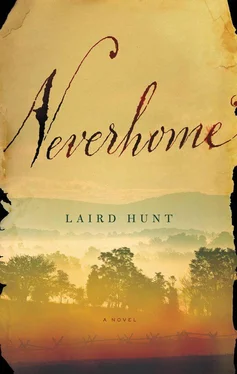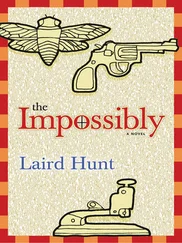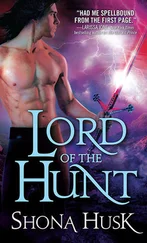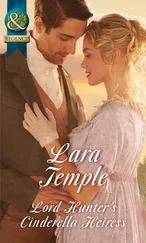
My world had shrunk those weeks to the size of Neva Thatcher’s little house and yard, and leaving aside the question of kisses, I had gotten comfortable in that world, had found it fragrant, even cozy. Meanwhile, as I discovered when one morning we went out for a walk, the town beyond her fences had been turned during my convalescence into a privy, and the land around the town into a rubbage ground. Union army wagons with broken axles lay in the fields like the bones of lost things had once bellowed and breathed, and everywhere you could see broken munitions of various descriptions and snapped bridles and rucksacks cut or torn. There was a boot-ruined field on the edge of one of the camps and on the hill beside it was an abandoned gallows. We crossed a brown skull or two, one of which had a broken cavalry sword stuck through its eye. I saw something shiny at the edge of a reedy pond and pulled out a bugle had been given an extra twist. We passed a old slave-selling emporium had had its main sign pulled down and its front door, frame and all, stove in, no doubt to facilitate, Neva told me, the egress of all the ghosts had still been whistling around inside it.
“I take it you are against the institution,” I said then.
“Honey, there are plenty of us down here, imports or otherwise, who never held with it.” She spit as she said this. The gob landed near my foot and she begged my pardon. She touched my hand with two of her fingers when she did. “They used to stand them over there,” she said, pointing at a wide piece of wood plank outside the emporium. “There was one time it was just boys and girls, each one of them wearing one of those masks. You could see about all of them, young as they were, had been whipped.”
“Did they get sold?”
“They always got sold.
“My husband,” she added, after we had put our backs to that place, “fought for the Confederacy but felt much the same way.”
Soldiers walked hither and thither in company or alone and a number of them called out to us on our walks. If they had dark soldier thoughts, though, they kept them to themselves and mostly they paid us courtesies and called out to Neva Thatcher by name. We walked farther each day away from the town, and the garbage and soldiers trailed off and by and by it was just the stripped and battle-burned land. I’m painting up a picture of a world gone off to its glory and never coming back and woe to us all, but with every minute my lungs worked on those walks, my head felt lighter and my mind felt clearer and a kind of giddiness galloped up and overtook me. I gave out a happy laugh then when Neva Thatcher took me over a hill and showed me a corner of the hundred and twenty acres had been her husband’s and said once more if I wanted to I could stay and work it after the soldiers had gone. I still didn’t answer but laughed again and even turned a frolic or two as we walked down a few of that hundred and twenty acres’ ruined rows. For a minute some fat sow hadn’t been shot and cooked came out and gave a snuffle into the field and I told Neva Thatcher I was going over to see if I was strong enough to pick it up.
“I used to be able to pick up a good-size pig,” I said and saw in my mind that first pig my companion and I had shot near that shed full of chain in Kentucky.
“Stay here and be my friend and farmer,” Neva Thatcher said, putting her hand on my arm as I thought these thoughts.
But I had grown quiet for thinking of Kentucky and its pigs and wasn’t much company to Neva then or after we returned from our walk. Back at the house over a bowl of corn soup I cheered up some and offered up an apology, to which Neva answered that I must never, but for the gravest offenses, say that I was sorry. We took walks after her work the rest of the days I was there. On one of those walks I hitched up my skirts and gave a try to see if I still remembered how to run.
“You trot admirably, I’ll give you that,” called Neva Thatcher from the other end of the stretch I’d sprinted down, “but now take a look at this.”
I have seen a handsome number of years since then, but I have never beheld anyone, not even Bartholomew at his best, run as strong and speedy as Neva Thatcher did that day when she hitched up her skirts and came running in my direction across the earth.

The days crept their cool ways past and Neva’s kisses came closer together and the soldiers in the street gave signs of a great muster to be held and I knew it was time for me to leave.
“They would have taken my arm off; it was you saved me,” I told her my last night in her house. It was late and she had come like she came every evening now to kiss me.
“It was you your cousin was talking about,” I said. “You were the one who walked into the wild and saved someone.”
“I have never been to California,” she said.
“Doesn’t make the story any one word less about you,” I said.
“And here I thought it was about all of us.”
“Us?”
“Every last one.”
“I don’t follow you.”
“You are better, aren’t you,” she said.
“You made me better. And I thank you for it.”
“This is a leaving speech.” Her voice dropped. “I know one when I hear it.”
“I’d like to return to my regiment.”
“Won’t they be far away by now? Perhaps even on the other side of the world?”
“I think I can find them.”
“Why not just go home? To your husband man. Go on home if you won’t stay here. If you won’t stay with me and love me a little and work my farm.”
I shook my head and she gave me up her smile and kissed me one last time in this life and when I woke there were four Union soldiers and an officer standing by the bed. Neva was leaning in the doorway behind them. She didn’t speak when they hauled me up, just handed them my old uniform, watched them drop a rough-cloth dress over my head, and let them kick and cuff me and call me a spy and take me away. She came that evening to visit me in the cell they rigged out of the sheep shed and tossed me in down next to the stable.
“If you had just said you were going home to your Bartholomew and not back to the war instead of staying here with me. If only you had said that, I could have stood it,” she said.
“You let me out of here, I’ll go back to him,” I said. “Or how about I stay with you. You tell them to let me out of here and I’ll stay with you and we can run races and pick up pigs every day.”
“You didn’t pick up any pig and we already know who would win those races,” she said.
She had brought me two hard-boiled eggs and she helped me peel them. She looked me in the eyes the whole time I ate. Then she went away. In the deep and dark hours of that night I thought she’d come back, for I woke out of a doze hadn’t taken me any farther away than the backs of my own eyelids and saw a figure sitting near me. It shifted though, or the moon outside the window found a way to move, and I saw it wasn’t Neva. It was another woman altogether, one the lay of the moonlight had lent a single golden eye.
“How did you get in here?” I asked.
She didn’t answer. Just sat there. Kneeling, it looked like. Hands in her lap. My own hands were bound. She had on pants and a broadcloth coat. Below the eye I couldn’t catch blinking you could see the long curve of her cheek.
“I was sleeping,” I said.
No answer. By and by the moonlight had lit her eye left it and in the darkness she stood.
“Keep a distance, now,” I said.
But she stepped forward and to my side with a movement geared quicker than I liked and after she had stood there awhile breathing cloudy breaths into the cold air, she leaned her head in close to mine. I wanted to turn my own head and look at her but found I couldn’t.
Читать дальше













